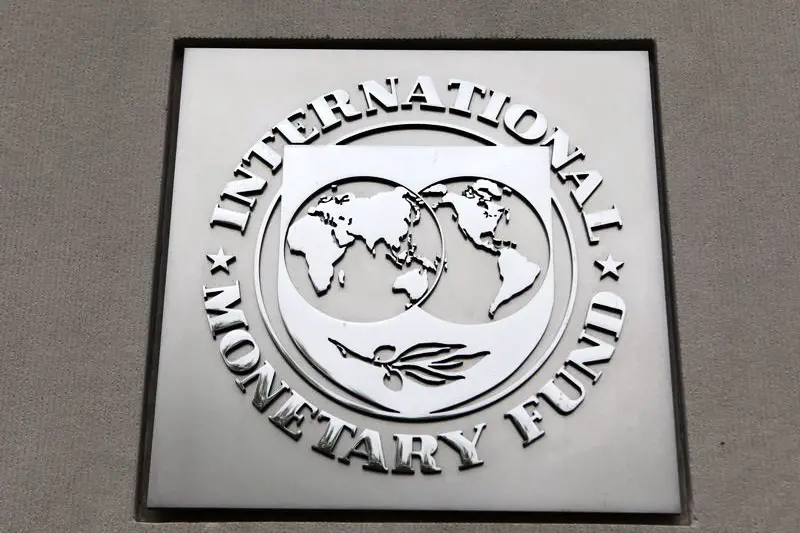PHOTO
AMMAN -- The International Monetary Fund (IMF) expects Jordan's economy to grow by 3.2 per cent this year, lower than the 3.7 per cent projected by the government.
In an e-mail interview with The Jordan Times, IMF mission chief to Jordan, Kristina Kostial, said that assuming regional situation does not further deteriorate, economic activity in the Kingdom is expected to accelerate over the next two years, boosted by lower oil prices and a gradual recovery in investor's confidence, adding that growth is projected to increase from 2.5 per cent in 2015 to 3.2 per cent in 2016 and 3.7 per cent in 2017.
For 2015, the IMF has previously expected the gross domestic product (GDP) to grow by 2.9 per cent but due to slower economic activity in the first three quarters, which stood at 2.3 per cent, it was downgraded to 2.5 per cent.
In its 2016 state budget law, the government projected the GDP to expand by 3.7 per cent in 2016 and 4.5 per cent in 2017.
"Growth has indeed been weaker than expected and too low to make a dent in unemployment. This underperformance reflected significant external shocks over the past years," she said.
She cited the difficulties and uncertainties associated with the regional conflicts, lower-than-expected public investment, and limited progress in structural reforms.
Kostial announced she has concluded her assignment on Jordan and would be replaced by Martin Cerisola as the new IMF mission chief.
The IMF official called for changes to the way the government works as an acceleration of structural reforms is needed to secure stronger and sustained growth, create jobs and improve Jordan's competitiveness.
New cooperation
The IMF and the government have recently started a second round of discussions over a new assistance programme to help the Kingdom implement medium-term structural reforms and to enable Jordan to benefit from the fund's financing tools.
The Extended Fund Facility (EFF) would focus on growth and job creation and improving the Kingdom's business environment to be more attractive to investors, according to Kostial.
The EFF is another programme Jordan is seeking to implement with the IMF after concluding the three-year Stand-By Arrangement (SBA) in August last year, which gave the Kingdom access to around $2 billion.
Kostial said the mission to Jordan has continued dialogue with officials on macroeconomic policies and structural reforms that could be supported under the EFF, as well as on the financing that could be provided under such an arrangement.
"This dialogue has been very productive with a follow-up visit to Amman soon. As part of this discussion, we will look into pledges made in the context of the recent donor conference in London, aimed at helping Jordan cope with the humanitarian needs of the refugee crisis, which have been weighing on Jordan's economy," she added.
'SBA programme a success'
Commenting on views by some economists in Jordan that the SBA failed to achieve its goals, i.e., to reduce the budget deficit, increase revenues and address public debt, Kostial said given the starting position and subsequent shocks that Jordan experienced, the reform programme was successful in reducing Jordan's vulnerabilities.
Authorities delivered a large fiscal adjustment, supported by the decline in global oil price, made progress in the energy sector, especially fuel price reforms, and succeeded in restoring an adequate level of central bank reserves -- in the face of significant regional shocks.
Substantial adjustment was necessary given the debt and financing position and feasible in view of earlier fiscal slippages, Kostial said, noting that the composition of the adjustment could have been more skewed towards growth-and equity-enhancing revenue measures and there had been limited progress in implementing structural reforms to support growth.
"Our preliminary estimates indicate that the 2015 budget deficit might have been higher than projected at the time of the SBA final review, reflecting primarily domestic revenue shortfalls, including lower oil-related taxes and excises, public enterprises surpluses and non-tax revenues."
At the public sector level, this higher deficit is expected to have been partly offset by lower-than-projected operational losses by the state-owned electricity company, owing in part to the lower oil prices. As a result, public debt is expected to have exceeded the 90 per cent of the GDP projected under the SBA final review.
Kostial said the IMF mission is going to discuss with authorities the causes for the revenue shortfalls in 2015 and their implications going forward.
'Challenges not going soon'
Kostial said that significant challenges remain as public debt is high; growth has been insufficient to increase very low employment ratios; despite lower oil prices, the current account adjustment has been slower than expected; and the regional conflicts could durably affect trade, tourism and investment.
"We at the IMF are looking to build on the success of the SBA and stand ready to assist the authorities in tackling these challenges," she indicated.
© Jordan Times 2016





















